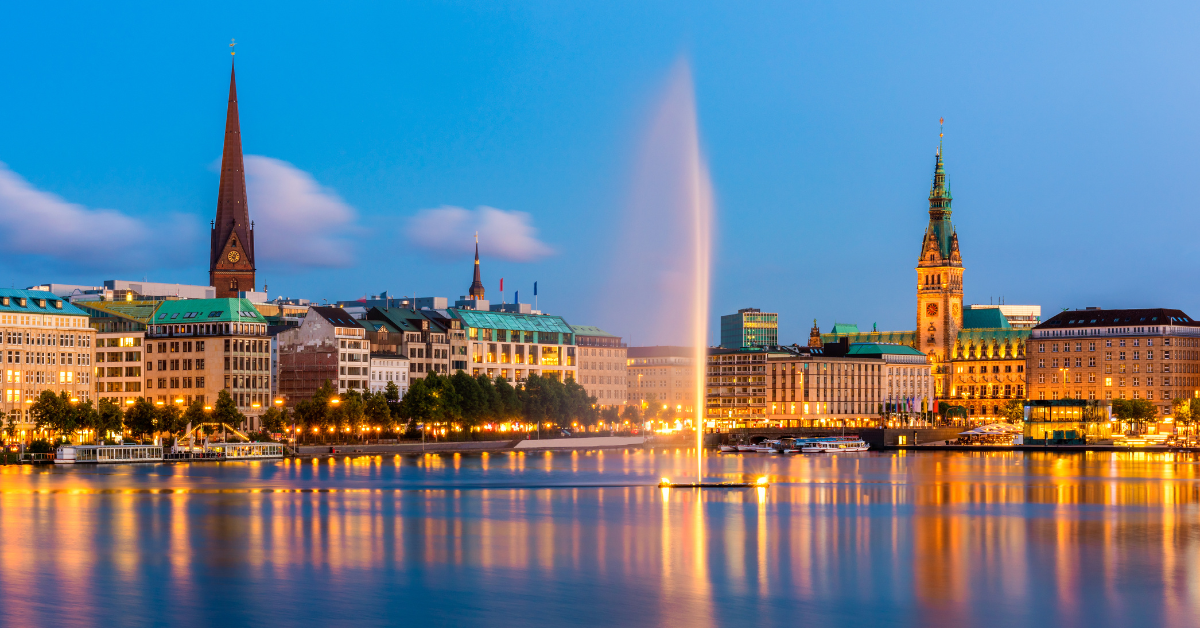Hamburg, Germany’s second-largest city, is internationally known as a major port town. In Japanese, it is generally written in katakana as “ハンブルク”, while in Chinese it is represented as “漢堡.” This article explores not only the background of these different representations but also the unique image Japanese people have of Hamburg through culture, history, and sports.
Does Hamburg Have an Established Kanji Representation?
In Japanese, Hamburg does not have an established kanji representation. Place names are proper nouns, and they are usually transcribed phonetically rather than translated. Therefore, in Japanese it is written as “ハンブルク”. In Chinese, however, it is written as “漢堡”, based on sound. Yet this same character combination also means “hamburger,” which can cause confusion depending on the context.
| Language | Representation | Feature |
|---|---|---|
| Japanese | ハンブルク | Commonly written in katakana |
| Chinese | 漢堡 | Phonetic transcription, also means burger |
| English | Hamburg | Internationally recognized official name |
The Image Japanese People Have of Hamburg
For Japanese people, Hamburg is strongly associated with the images of a “port town,” “city of music,” and “historical city.” Visitors, students, business travelers, and music lovers all see the city through different perspectives, each shaping a unique impression.
As a Port City
Located along the Elbe River, Hamburg is one of Europe’s largest trading hubs. Japanese people often imagine it as a “port connected to the world”, evoking feelings of international openness and cosmopolitan energy.
As a City of Music and Culture
Hamburg holds an important place in the history of music. From classical concerts and opera houses to being the city where the Beatles honed their craft before worldwide fame, Hamburg is seen as a center of musical culture. For Japanese travelers, it is a city where they can experience both art and performance.
As a City of History and Architecture
The Speicherstadt warehouse district, a UNESCO World Heritage site, is famous for its red-brick buildings and scenic cityscape. Hamburg’s long history as a free city makes it distinct from other German cities, and for Japanese visitors, it stands out as a place where “tradition and modernity coexist.”
| Image | Content | Japanese Impression |
|---|---|---|
| Port | International trade city | An open city connected to the world |
| Music | Classical and Beatles culture | A cultural city to enjoy art and music |
| History | Warehouse district and heritage | A city with beauty and unique character |
Hamburg as a Sports City
Hamburg is not only known for culture and commerce but also has a prominent presence in sports.
Football Culture
The historic club Hamburger SV has long been one of the pillars of German football. Additionally, FC St. Pauli has gained global attention for its unique club philosophy and social messages. Together, these clubs have given Hamburg the impression of being a “passionate and distinctive football city” among Japanese fans.
Tennis and City Sports
Hamburg also hosts international tennis tournaments, attracting fans across Europe. Moreover, the Hamburg Marathon has become a popular participatory event, reinforcing the city’s image as vibrant and health-oriented.
| Sport | Feature | Japanese Impression |
|---|---|---|
| Football | HSV and St. Pauli clubs | Passionate support and unique club culture |
| Tennis | International tournaments | A city tied to global sports events |
| Marathon | City-wide participatory event | A city symbolizing vitality and health |
The Connection Between Japan and Hamburg
Japan and Hamburg share strong ties in economics, education, and culture.
Economic Exchange
With its port-centered economy, Hamburg has attracted many Japanese companies that use the city as a base for international business. For this reason, Hamburg is often seen as an “economic hub for exchange.”
Education and Study Abroad
Institutions such as the University of Hamburg welcome Japanese students, enabling active academic and cultural exchanges. The city is highly regarded as a place where Japanese people can learn and experience culture directly.
Tourism and Daily Life
For travelers, Hamburg ranks alongside Berlin and Munich as a prime German destination. Its port atmosphere, music festivals, and world heritage sites attract many Japanese visitors. In addition, Japanese restaurants and communities in the city provide a sense of comfort, making Hamburg an “easy city for Japanese people to live in.”
| Field | Content | Japanese Evaluation |
|---|---|---|
| Economy | Trade and logistics-based ties | International business hub |
| Education | Universities and research | Academic and cultural exchange opportunities |
| Daily Life | Japanese food and communities | A city where Japanese can feel at home |
Conclusion
Hamburg does not have an established kanji representation like the Chinese “漢堡”, and in Japanese, it is written as “ハンブルク” in katakana. For Japanese people, Hamburg is imagined as a city that embodies the openness of an international port, the charm of music and the arts, historical architecture, and the vitality of sports culture.
As a destination for tourism, study, business, and sports, Hamburg offers diverse experiences and will likely continue to attract Japanese attention in the future.






